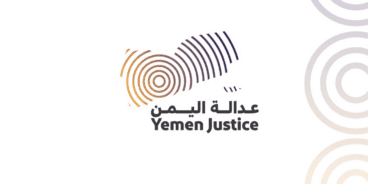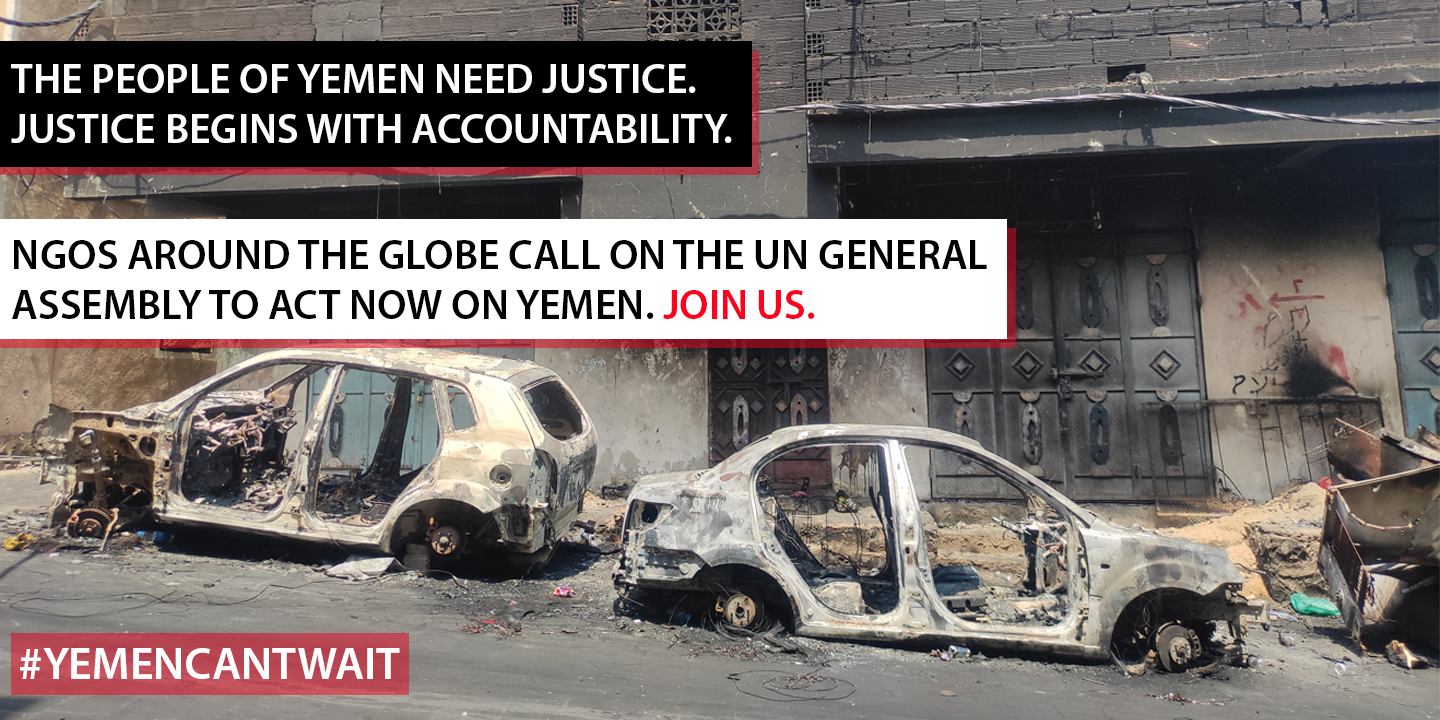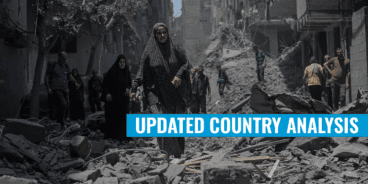

Civil Society Groups Demand Urgent UN Action Against Impunity for Yemen Crimes
On 2 December Global Centre for the Responsibility to Protect Executive Director Savita Pawnday joined Amnesty International, Cairo Institute for Human Rights Studies, Human Rights Watch and Mwatana for Human Rights at a press conference to launch this joint NGO appeal for UN General Assembly action to ensure accountability for mass atrocity crimes committed in Yemen. See the joint press release and a recording of the press conference here.
For nearly seven years, the people of Yemen have been victims of innumerable war crimes and human rights abuses.
Until last month, the fact that the United Nations Human Rights Council’s Group of Eminent Experts (GEE) was documenting crimes by all parties to the conflict and reporting them to the world attested to a commitment to address widespread impunity for such crimes. It signaled to civilians in Yemen that Member States of the United Nations were not turning a blind eye to their suffering.
But not anymore. Saudi Arabia, backed by the United Arab Emirates, the leaders of a military coalition in the Yemen conflict, lobbied Human Rights Council members to end the GEE’s impartial monitoring and reporting. As a result, Council members narrowly rejected a resolution whose adoption would have renewed the GEE’s mandate, dealing a serious blow to accountability efforts.
As the Netherlands’ ambassador to the UN in Geneva rightly summed it up, by ending the GEE, the Council has “failed the people of Yemen.”
The international community cannot stand by and allow that vote to be the last word on accountability efforts for abuses and war crimes in Yemen.
The undersigned organizations call upon the UN General Assembly to move quickly and establish a new international accountability mechanism for Yemen. The suffering already inflicted on civilians in the country demand this step to address impunity in the ongoing conflict and send a clear warning to perpetrators on all sides that they will be held accountable for war crimes and other serious violations of international humanitarian and human rights law.
All parties to the conflict in Yemen have perpetrated widespread and systematic abuses, including the killing and injuring of tens of thousands of civilians. Since 2015, the Saudi and UAE-led coalition has conducted scores of unlawful airstrikes that have killed and injured civilians and destroyed or damaged homes, hospitals, schools, markets and other civilian infrastructure , and has allegedly armed and supported local armed groups and militias. Houthi forces have fired mortars, rockets, and other missiles indiscriminately into heavily populated areas, including cities, in Yemen, and have launched ballistic missiles indiscriminately at populated areas in Saudi Arabia. Warring parties have prevented life-saving humanitarian aid from reaching those who need it. The criminal conduct of all parties to the conflict has claimed many thousands of civilian lives and caused the world’s worst humanitarian crisis in Yemen.
The undersigned organizations call upon the UN General Assembly to establish an independent and impartial body that would investigate and publicly report on the most serious violations and abuses of international law committed in Yemen, while also collecting and preserving evidence and preparing files for possible future criminal prosecution. Such a strong mandate is required to ensure not only that the serious crimes under international law committed in Yemen be exposed to the world, but also that potential avenues of criminal accountability may be effectively utilized in the future to address impunity and provide effective redress to victims.
Although this is an ambitious goal, the General Assembly has risen to the challenge before, when grave, widespread and persistent abuses demanded it. For example, in 2016, the General Assembly created the International, Impartial and Independent Mechanism to collect, preserve and analyze evidence of the most serious crimes under international law committed in Syria. In 2018, the Human Rights Council created a similar mechanism for Myanmar in the wake of the 2017 crimes against humanity and possible genocide committed against Rohingya Muslims. Recognizing the urgent need for accountability in Yemen, dozens of UN Member States have already urged the international community to “actively explore further alternative mechanisms” for monitoring the human rights situation.
UN General Assembly Member States can and should create such an accountability mechanism for Yemen and ensure it is provided with adequate resources to fulfill its mandate. It is the least they can do for those who have endured immeasurable suffering for nearly seven years.
The people of Yemen need justice. Justice begins with investigations and accountability. The time to act is now.
Signatories:
- Action on Armed Violence (AOAV)
- ACAT-France
- Africa Center for Security, Governance & Research
- Alakhar For Peace And Development Centre
- Alkarama for Human Rights
- Al-Amal Developmental Feminism Foundation
- ALQST for Human Rights
- Allard K. Lowenstein International Human Rights Clinic, Yale Law School
- Americans for Democracy & Human Rights in Bahrain
- Amnesty International
- Australian Centre for International Justice
- Avaaz
- Bahrain Institute for Rights and Democracy (BIRD)
- Bridges for Yemen
- Cairo Institute for Human Rights Studies (CIHRS)
- Campaign Against Arms Trade (CAAT)
- CAMPAÑA COLOMBIANA CONTRA MINAS
- Centre for Social Impact Studies
- Changemaker Norway
- CIVICUS
- Columbia Law School Human Rights Clinic
- Conflict and Environment Observatory
- Control Arms
- Daoo Foundation for Rights& Development
- DefendDefenders (East and Horn of Africa Human Rights Defenders Project)
- Defense Foundation for Rights and Freedoms
- Frontline Human Rights
- Democracy School
- Development House
- Dhameer Organization for Rights and Liberties
- European Center for Democracy and Human Rights (ECDHR)
- Egyptian Initiative for Personal Rights (EIPR)
- Femmes des medias pour la justice au Congo
- FOMICRES
- Ffed Rural Development Assocition
- Global Action to Prevent War and Armed Conflict
- FundiPau (Fundacio per la Pau)
- Global Centre for the Responsibility to Protect
- Global Legal Action Network
- Gulf Centre for Human Rights
- GobiérnaTec (Venezuela)
- Human Life Foundation for Development and Relief
- Human Rights Now
- Human Rights Information & Training Centre- HRITC
- Human Rights Watch (HRW)
- International Commission of Jurists (ICJ)
- Human Rights Monitor Organization
- International Federation for Human Rights (FIDH)
- International Service for Human Rights (ISHR)
- Innovation for Change Middle East and North Africa
- Le Réseau d’action sur les armes légères en Afrique de l’Ouest, section Côte d’Ivoire (Le RASALAO-CI)
- MENA Rights Group
- Mwatana for Human Rights
- “My Rights” – Foundation for Women’s Political Empowerment
- Partners Foundation
- PAX
- Fadf Foundation for Rural Development
- Peace Track Initiative
- People’s Federation for National Peace and Development (PEFENAP)
- Rete Italiana Pace e Disarmo
- Project Ploughshares
- Project on Middle East Democracy (POMED)
- Programa Venezolano de Educación-Acción en Derechos Humanos (Provea)
- Saferworld
- Salam For Yemen
- SAM Organization Rights and liberty
- Sisters’ Arab Forum for Human Rights (SAF)
- Swedish Peace and Arbitration Society
- Truth Justice Memory Center
- Vision GRAM-International
- Vredesactie
- Watch for Human Rights
- WITNESS
- Win Without War
- Women for Peace and Democracy Nepal
- World Organisation Against Torture
- Women’s International League for Peace and Freedom
- Yemen Relief and Reconstruction Foundation
- Yemeni Archive
- Yemen Policy Center- Germany
- Yemeni women Union Abyan
To sign on, please email Jahaan Pittalwala at jpittalwala@globalr2p.org.
Related Content


Populations at Risk
